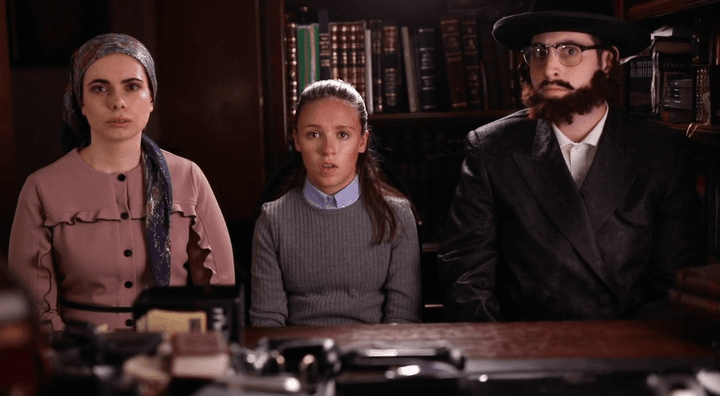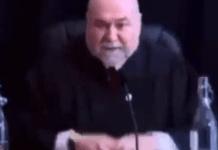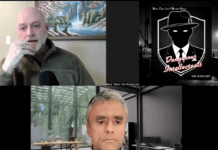
By Avital Chizhik-Goldschmidt,
Amudim, the Orthodox Jewish organization that supports Orthodox youth in crisis, just released a powerful video campaign about sexual abuse, produced by Yeeshai Gross — and it’s required viewing for anyone affiliated with just about any faith community.
A mother, father and teenage daughter sit facing an authority figure — a principal, a rabbi, an educator — having a conversation that happens in every community. In each scene, the family is played by the same actors, but each time dressed differently, shuffling identities that we Jews so love to differentiate ourselves between, as Hasidic, as modern Orthodox, as yeshivish, as Masorti. Headscarf or sheitel or bare head, black hat or velvet yarmulke or knitted kippah — it’s all the same when it comes to abuse:
“This sort of thing doesn’t happen by us. Not in our community.”
“I’ve known him for fifteen years, and he would never do that.”
“If he’s been with us for so many years — why only now did this come up?
“We need one-hundred percent proof!”
“He has a family! Children to marry off!”
“He’s done so much good. This can ruin his life.”
“We don’t air our dirty laundry.”
The look of betrayal on the young girl’s face, the parents’ horrors at witnessing their child being dismissed, the principal’s head shaking — these scenes are far from fiction. They are lifted directly from real life. Anyone who has interacted with abuse victims in a religious community has heard these phrases before, time and time again.
Ask anyone in our community who has been in the unfortunate — yet necessary — position of having to inquire about an abuser, in order to report the crime. The responses are identical, predictable almost: “But his family! But his organization! What he’s done for our people! How dare you!” Listening to a person virulently defend an alleged perpetrator’s Importance In Our Community causes a sense of vertigo. In the back of one’s mind, images flash from the private testimonies that victims have painstakingly divulged: A locked door, an unwanted hand, a lifted skirt, a hand on the mouth.
There is something particularly brave about Amudim’s depiction of these behind-closed-doors conversations. Perhaps because instead of yet another op-ed or tweet calling for reforms, Amudim harnesses the power of art, a tool too rarely used in the Orthodox community to drive change. The choice to portray these secret conversations with little commentary — simply as if we are sitting right there, in those rabbinic offices — is brilliant. Let us hope that this wakes our community up, and most importantly, that the victims among us feel seen.
Abuse happens, and it certainly happens in our communities. But it thrives the most, as this organization bravely points out, when we refuse to acknowledge it.
Avital Chizhik-Goldschmidt is the life editor at the Forward. Email her avital@forward.com; follow her on Twitter @avitalrachel and Instagram @avitalrachel
This story “Orthodox Jews Releases PSA Video About Sexual Abuse” was written by Avital Chizhik-Goldschmidt.
Source: https://forward.com
Disclaimer: We at Prepare for Change (PFC) bring you information that is not offered by the mainstream news, and therefore may seem controversial. The opinions, views, statements, and/or information we present are not necessarily promoted, endorsed, espoused, or agreed to by Prepare for Change, its leadership Council, members, those who work with PFC, or those who read its content. However, they are hopefully provocative. Please use discernment! Use logical thinking, your own intuition and your own connection with Source, Spirit and Natural Laws to help you determine what is true and what is not. By sharing information and seeding dialogue, it is our goal to raise consciousness and awareness of higher truths to free us from enslavement of the matrix in this material realm.
 EN
EN FR
FR


























Thank You.
I heard 2nd hand stories about: how people claim to eat kosher foods but they sneak into a regular restaurant to eat tacos or other un kosher entrees at Mexican restaurants.